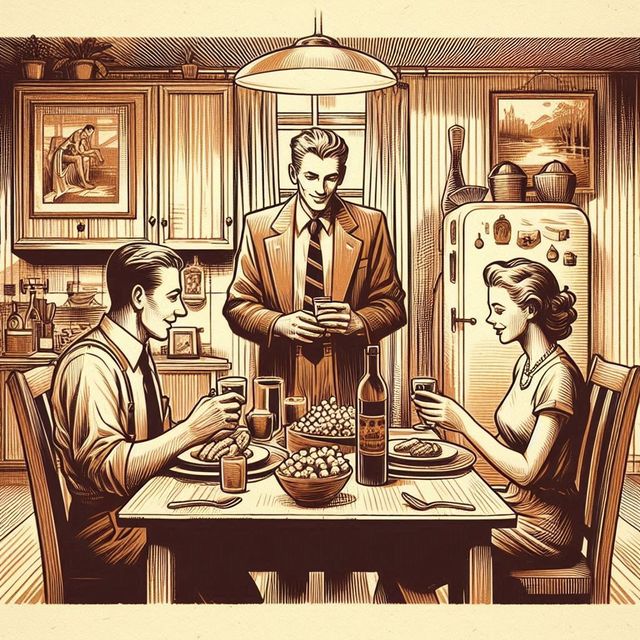-
Vijay Fafat
- Published on
Gene Berry was a statistical anomaly. A foster child who had changed four families, he was “god-damned bright”, “a treasure-trove of disparate facts” and blessed with “extraordinary reasoning powers”. And yet, he was always indecisive, “wishy-washy”. He and the narrator - call him Charlie for this review - started out as friends, though with a subtext of jealousy. In particular:
“We went through the four years together, both majoring in mathematics. Once again Gene was simply following my choice. But now the situation took on unpleasant overtones for me. Although I was a first-rate mathematician, I just wasn’t in Gene’s league. His originality and creativity in getting to underlying concepts and then re-synthesizing them was uncanny. It was particularly evident when we came to study random process. The concepts of probability and statistics seemed to fire up this wishy-washy kid , and he began to devour everything in our texts, ransacking the libraries for deeper and deeper material. Within a few months, it became clear that Gene had arrived at insights that made him at least the equal of our professor, himself one of the leading authorities in the field. Gene learned to program the department’s computer very rapidly, and the algorithms he composed won him the coveted mathematics award for that year.”
Things took a nasty turn when Gene stole the affections of a girl whom Charlie wanted to charm. That set the two friends apart for a good ten years. When they met again:
“I’m still in mathematics,” I said. “I’ve done some computer programming, some teaching at a community college, and a couple of years ago I passed the last of the actuarial tests.”
Gene smiled.
“Somehow I never visualized you working for an insurance firm. I’m married and I have two small kids. And I run my own business.”
I couldn’t picture Gene running anything, but I was polite. “Really? I would have sworn you’d be somewhere in mathematics, too.”
“I am,” said Gene. “I’m very heavily in mathematics. I run a consulting firm and my income is considerable.” […] Naturally I make strong use of my mathematical training. I’m in the prediction business. […] I analyze all the data relating to a problem and determine the parameters of any associated random processes. And then I pick out the optimum choice.”
Turns out that Gene had learnt to boil down every decision in his life to a mathematical algorithm, programming his computers to print out detailed daily schedules for him based on a myriad inputs updated daily. E.g.
“Like anything else,” said Gene, “cooking cannot be left to chance. It can be analyzed and broken down into a logical structure.” […]\ Martha smiled.
“As a matter of fact, I do. Gene has planned every bit of the menu for me.”
“Planned your menu?”
“In a way. You see Gene wrote the computer program that chose this evening’s meal for us. We have a terminal located in the kitchen.”
“Really?”
This was something I had been totally unprepared for. “Come now,” said Gene. “There’s nothing surprising about it. I do the same for my clients at work; so why shouldn’t I help my wife at home? It was kind of an anniversary present to her. I spent a couple of years culling a thousand choice recipes and writing machine language programs that could take into account the time of year, availability and quality of ingredients, prices. In fact I programmed in every factor I could think of.”
“Including the preference of the guest ,” added Martha.”
and:
“Gene seemed agitated. “Nonsense,” he said. “Freedom of choice is an illusion. Anybody can botch up an indiscriminate mixture of randomly chosen elements and turn out some monstrous hodgepodge. In that sense, freedom of choice would mean the right to do a lousy job.”
“That’s awfully mechanistic, isn’t it?”
“Perhaps,” said Gene. “But there’s usually an optimum way of doing any task, given all of the facts. Why not have the freedom to use that optimum way, even if it means getting a helping hand from a computer. That’s the reason my business has been such a success, and that’s the way we’ve always run our home.”
[…]
“My basic principle is to rely heavily on the validity of our mathematical analysis. In the long run every process, no matter how random its properties, has to fall into line. But the most crucial thing of all is our hard data. That must be accurate.”
[…]
“You see,” he said vehemently. “When hard work is combined with creative mathematics, it has to work out.”
Thus it was that the indecisive Gene had programmed his entire life around probability, statistics, algorithms and decision-system analysis, having given up much of his free-choice actions to mathematical laws of prediction. This, as Charlie surmised when he left Gene to an evening of choices in daily marital family life which were not to be his, was the curse of Gene’s existence…
